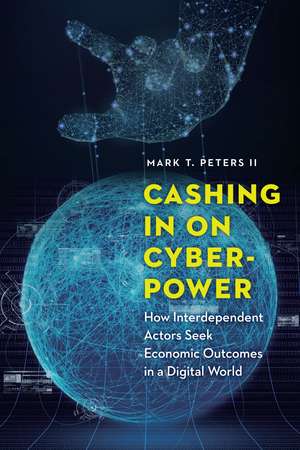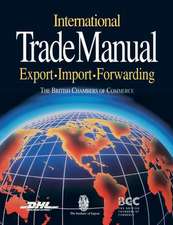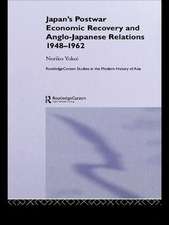Cashing In on Cyberpower: How Interdependent Actors Seek Economic Outcomes in a Digital World
Autor Mark T. Peters, IIen Limba Engleză Hardback – 30 apr 2018
As the world has become increasingly digitally interconnected, military leaders and other actors are ditching symmetric power strategies in favor of cyberstrategies. Cyberpower enables actors to change actual economic outcomes without the massive resource investment required for military force deployments.
Cashing In on Cyberpower addresses the question, Why and to what end are state and nonstate actors using cybertools to influence economic outcomes? The most devastating uses of cyberpower can include intellectual property theft, espionage to uncover carefully planned trade strategies, and outright market manipulation through resource and currency values.
Offering eight hypotheses to address this central question, Mark T. Peters II considers every major cyberattack (almost two hundred) over the past ten years, providing both a quick reference and a comparative analysis. He also develops new case studies depicting the 2010 intellectual property theft of a gold-detector design from the Australian Codan corporation, the 2012 trade negotiation espionage in the Japanese Trans-Pacific Partnership preparations, and the 2015 cyberattacks on Ukrainian SCADA systems. All these hypotheses combine to identify new data and provide a concrete baseline of how leaders use cybermeans to achieve economic outcomes.
Cashing In on Cyberpower addresses the question, Why and to what end are state and nonstate actors using cybertools to influence economic outcomes? The most devastating uses of cyberpower can include intellectual property theft, espionage to uncover carefully planned trade strategies, and outright market manipulation through resource and currency values.
Offering eight hypotheses to address this central question, Mark T. Peters II considers every major cyberattack (almost two hundred) over the past ten years, providing both a quick reference and a comparative analysis. He also develops new case studies depicting the 2010 intellectual property theft of a gold-detector design from the Australian Codan corporation, the 2012 trade negotiation espionage in the Japanese Trans-Pacific Partnership preparations, and the 2015 cyberattacks on Ukrainian SCADA systems. All these hypotheses combine to identify new data and provide a concrete baseline of how leaders use cybermeans to achieve economic outcomes.
Preț: 157.95 lei
Nou
Puncte Express: 237
Preț estimativ în valută:
30.23€ • 31.38$ • 25.20£
30.23€ • 31.38$ • 25.20£
Carte disponibilă
Livrare economică 01-15 martie
Preluare comenzi: 021 569.72.76
Specificații
ISBN-13: 9781640120136
ISBN-10: 1640120130
Pagini: 280
Ilustrații: 11 tables, 13 graphs, 1 appendix, index
Dimensiuni: 152 x 229 x 29 mm
Greutate: 0.56 kg
Editura: Potomac Books Inc
Colecția Potomac Books
Locul publicării:United States
ISBN-10: 1640120130
Pagini: 280
Ilustrații: 11 tables, 13 graphs, 1 appendix, index
Dimensiuni: 152 x 229 x 29 mm
Greutate: 0.56 kg
Editura: Potomac Books Inc
Colecția Potomac Books
Locul publicării:United States
Notă biografică
Mark T. Peters II is assigned to Lackland Air Force Base in Texas. As a career U.S. Air Force intelligence officer and master cyberspace operator, he previously served as squadron commander for the Eighteenth Intelligence Squadron, a space intelligence unit. Peters has a doctorate in strategic studies and more than twenty years of military and intelligence experience.
Cuprins
List of Figures
List of Tables
Acknowledgments
1. Entering the Cyber Commons
Problem
Research Question
Interdependence and Power
Method Development
Cyber Application and Case Studies
Summary
2. Interdependence
Why Use Interdependence Theory?
Interdependent Characteristics of the Virtual State
Defining Interdependent Cyberspace
Cyber Operations
Summary
3. Power
Types of Power
Power Application
Power through Economic Cyber Influences
Summary
4. Method Development
Method Types
Describing the Data Sources
Categorizing Cyber Events
Case Study Guideline
Summary
5. Cyber Applications
Application in Practice
Deciphering the Data
Evaluating the First Four Hypotheses
Summary
6. Case Study Analysis
Deciphering Events through Narrative Linkages
Japanese Government Case: Economic Espionage
Ukrainian Power Grid Case: Economic Cyberattack
Codan Case: Intellectual Property Theft
Evaluating the Economic Hypotheses (H5, H6, H7, H8)
Summary
7. Framing Future Channels
Linking Hypotheses to the Research Question
Future Applications
Final Thoughts
Appendix: Cyber Events
Notes
Bibliography
Index
List of Tables
Acknowledgments
1. Entering the Cyber Commons
Problem
Research Question
Interdependence and Power
Method Development
Cyber Application and Case Studies
Summary
2. Interdependence
Why Use Interdependence Theory?
Interdependent Characteristics of the Virtual State
Defining Interdependent Cyberspace
Cyber Operations
Summary
3. Power
Types of Power
Power Application
Power through Economic Cyber Influences
Summary
4. Method Development
Method Types
Describing the Data Sources
Categorizing Cyber Events
Case Study Guideline
Summary
5. Cyber Applications
Application in Practice
Deciphering the Data
Evaluating the First Four Hypotheses
Summary
6. Case Study Analysis
Deciphering Events through Narrative Linkages
Japanese Government Case: Economic Espionage
Ukrainian Power Grid Case: Economic Cyberattack
Codan Case: Intellectual Property Theft
Evaluating the Economic Hypotheses (H5, H6, H7, H8)
Summary
7. Framing Future Channels
Linking Hypotheses to the Research Question
Future Applications
Final Thoughts
Appendix: Cyber Events
Notes
Bibliography
Index
Recenzii
"Cashing In on Cyberpower is an important addition to the cybersecurity discourse. Mark Peters' research in the field of the empirical dynamics of cyber actions in the Global Cyberspace Commons is original and impressive. Mark Peters convincingly shows that states and non-state actors are increasingly using cyber as a means to generate economic outcomes and activities as they run out of other options. Most importantly, he shows that using cyber means to achieve economic goals is the continuation of war by other means. Scholars and practitioners and students will equally benefit from Cashing In on Cyberpower."—Washington Book Review
"Leveraging his previous career Air Force intelligence and cyberspace experience, author Mark T. Peters II applies theory, analyzes data sources, and looks at case studies to discover how and why actors use cyberspace capabilities to influence state and nonstate economic systems. In one generation the global impact of the cyber era has drastically changed how we view and use traditional instruments of national power. Symmetrical military power is increasingly relegated to a lesser role for managing competition and conflict with the rise of the digital means for influencing state and nonstate actors in the international arena. As a result of this study, Cashing in on Cyberpower reveals important implications for cyber theorists, researchers, and security professionals."—LTC Kurt P. VanderSteen, Strategic Studies Quarterly
“Peters goes beyond the usual cyber paradigms of domain, technology, and products/services. He makes a compelling case for cyber as a means to generate economic outcomes—by nation-state and nonstate actors alike.”—Maj. Gen. Dale Meyerrose, U.S. Air Force (Ret.)
“Cashing In on Cyberpower is an important contribution to the debate in the cybersecurity field. Mark Peters offers an impressive investigation of the empirical dynamics of cyberactions in the Global Commons. Likely the most impressive contribution is the focus on the economic means of cyberconflict, demonstrating the utility of economic warfare in digital interactions. Scholars, practitioners, and the public should take note.”—Brandon Valeriano, reader in International Relations and Digital Politics at Cardiff University and Donald Bren Chair of Armed Politics at Marine Corps University














